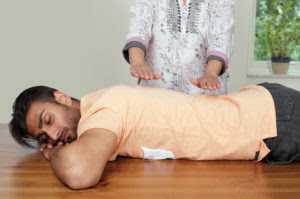Why Should You Consider Reiki Practice?
Are you interested to learn about Reiki practice? You are in the right place!
Today, more and more people are seeking Reiki therapy. This ancient practice provides universal life energy to help with the healing process. So whether you want to receive Reiki therapy for energy level balancing, emotional trauma healing, or spiritual development, Reiki offers several advantages. Let us explain more about what Reiki is and its benefits.
What is Reiki?
Reiki is a Japanese practice for energy healing. In the early 20th century, Dr. Mikao Usui developed the most widely practiced form of Reiki, also known as Usui reiki. You can call it an alternative or complementary health approach as Reiki does not treat illnesses or diseases directly. Instead, it is used to help people control their symptoms and enhance their overall health by aligning the energy in the person.
To bring about healing during a Reiki session, the practitioner lays their hands directly on you or slightly above you. The practitioner is thought to be able to activate your body's innate healing mechanisms.
There are several benefits of receiving Reiki therapy; some of them are as follows:
Boosts immunity
Reduces mental stress
Reduces pain and aches
It relaxes the body and calms the mind.
It helps to get restful sleep
Helps treat infertility
Removes toxins from the body
Helps in the management of Parkinson's disease
Energizes the body
Improves digestion
After surgery or injury, it helps with quicker healing.
Helps manage stress
Aids in the treatment of psychological conditions, such as depression and anxiety.
It helps patients gain a better outlook and endure standard medical treatments such as kidney dialysis, radiotherapy, chemotherapy, or any other type of surgery.
How to Choose a Reiki Practitioner
When looking for a Reiki practitioner, it is more important to consider the experience and educational background than the type of practitioner. For example, a first-degree Reiki practitioner may have more direct Reiki healing experience than a second-degree Reiki practitioner or even a Reiki master. Here are a few tips you can follow to find the best Reiki practitioner:
Request a recommendation from your nurse, doctor, or other health care provider.
Ask your circle of acquaintances. You might be surprised to learn that one of them is a Reiki practitioner or knows someone who is.
Consult an integrative, complementary, or holistic medicine provider. They may know a good practitioner or provide Reiki therapy themselves.
Simply request Reiki if you're in the hospital.
Get in touch with Reiki Alliance, a network of Reiki Masters who provide information and referrals linked to Reiki.
After your search is complete and you've found some practitioners, ask them what exactly you are looking for. First, get a sense of who they are and why they practice Reiki. Then, get detailed information about their billing practices, fees, and cancellation policy. This is not just useful information, but it also helps you know the individual more. All in all, choose a practitioner with whom you feel comfortable and who fits your requirements.
If you want to get more information about Reiki practice, visit the Koshas website. They can help you in your healing journey and also assist you with finding relevant information about Reiki practice (and many others) and how it can help you become your best self.

Comments
Post a Comment